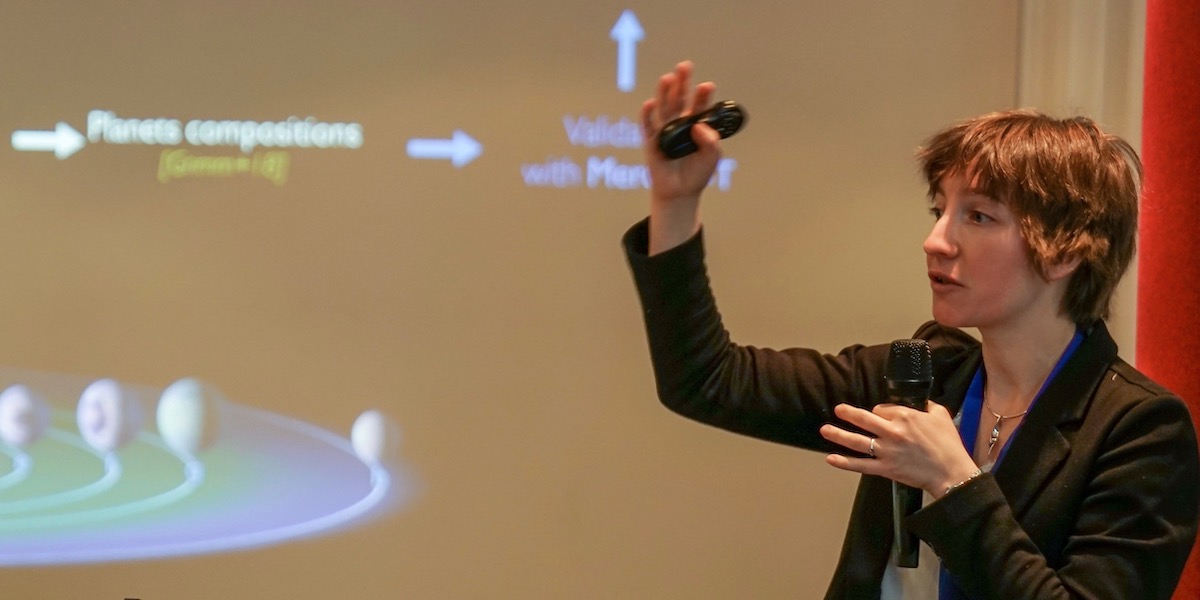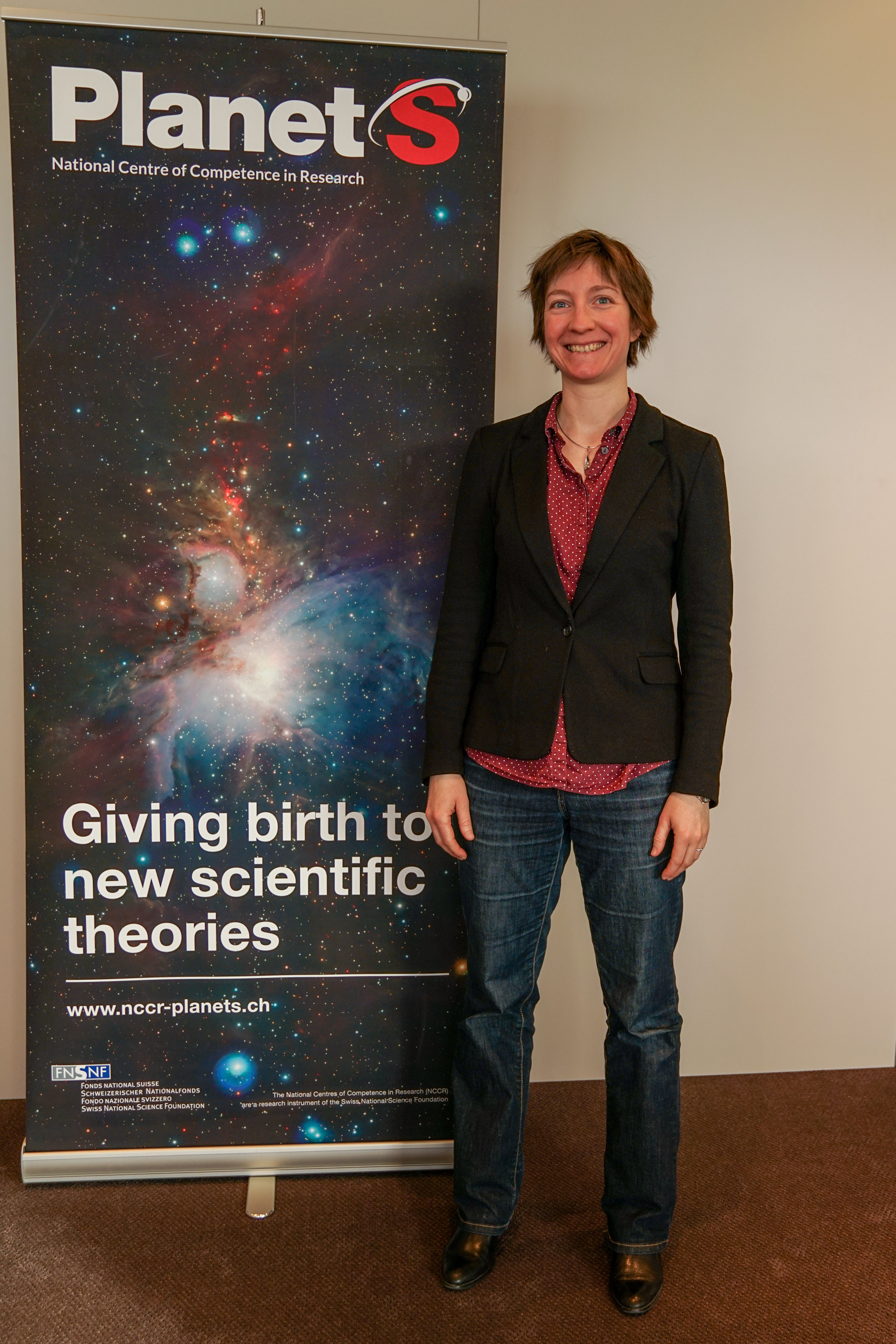A new teacher at PlanetS

Emeline Bolmont has just been appointed Assistant Professor in the Department of Astronomy at the University of Geneva, a position funded by PlanetS. Originally from Toul near Nancy in north-eastern France, the new professor was introduced to astronomy at a very early age by her parents who occasionally went to observe the sky on a small hillock a few kilometres from home.
“It was a family outing,” remembers Emeline Bolmont, “my parents were physics and chemistry teachers, and they used to take my brother and me out from time to time to look at the sky. We didn’t have any sophisticated equipment, our eyes and sometimes a pair of binoculars, but that was enough to pass the virus onto me.”
A virus that her brother also caught as he became an astrophysicist too. “When I started university, I asked my brother what it was like to be an astronomer,” says Emeline Bolmont, “I’m behind my screen most of the time,” he replied. A response that the sister liked only partially, “I didn’t see myself behind a computer all day”. A little disillusioned, she hesitated to follow another path “I seriously thought about becoming a pilot or aeronautical engineer”, she added smiling. But during various university internships, notably in Sweden and Bordeaux, Emeline Bolmont learned to master the machine. “I understood then that the computer was a tool and that once we knew how to use it, its capabilities were fantastic,” relieved by this apprehension she began a thesis in Bordeaux.
Subject: the influence of tidal effects on the evolution and habitability of exoplanets around small masses stars. With the evolution and recent developments in infrared observation techniques, an increasing number of planets are being discovered around stars with smaller masses, less luminosity and therefore more “red” colour.
Since the star is not very bright, the detection of the planet is easier because the contrast between the star and the planet is lower. In addition, as planets tend to be closer to small stars, it takes less time to determine their revolution periods. However, as these planets are close to their stars, they are subjected to significant tidal effects. How do these effects affect the evolution of the planet, its possible habitability, and its climate? These are all questions that the new professor in the Department of Astronomy at the University of Geneva will try to answer.
By the way, how did Emeline Bolmont arrive in Geneva?
While in post-doc at Saclay to study the tidal effects on the planets of Trappist-1, François Forget, a specialist in the exploration of the solar system and planetary environments, informed her about the opening of a position at the Observatory. “It was the dream,” says Emeline Bolmont, “a position with teaching related to my research, close to observation, with the openness and collaboration that PlanetS and the future SIPS allow, it was difficult to do better,” especially since she knows the place well, looking back at fruitful collaborations with the stellar evolution and exoplanet teams. Emeline Bolmont was told in Paris that the effects of tides on the planets and its influence on the climate are subjects with a bright future. It was right, Emeline Bolmonts work matches exactly one of the Domain 3’s main goals, which is the study and observation of exoplanetary atmospheres and climates. (PB)
http://nccr-planets.ch/?p=32497
http://www.emelinebolmont.com


